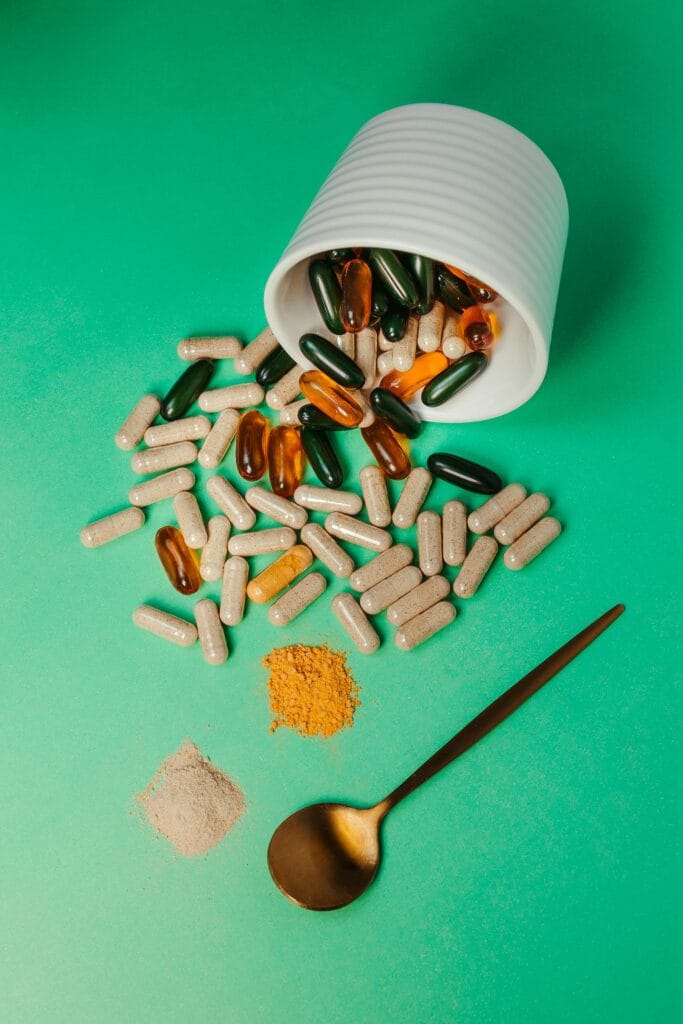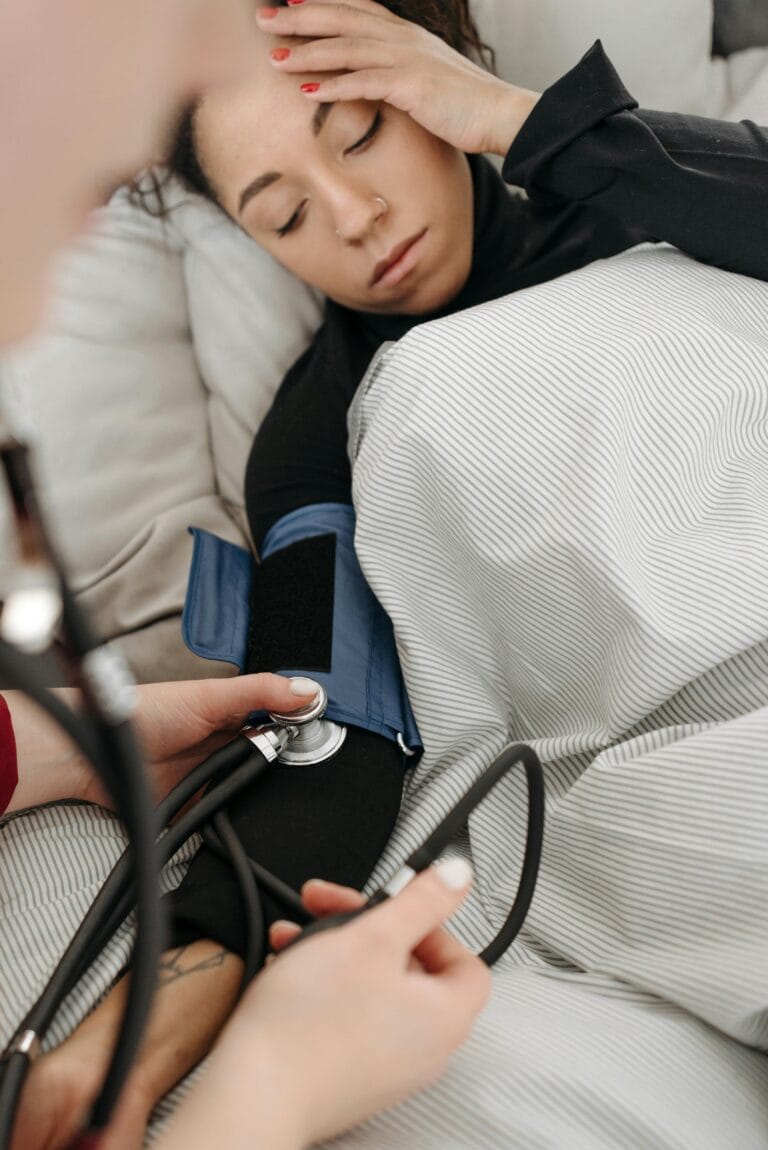FREE SHIPPING OVER $50
The 5 Supplements That Could Help You Beat High Cholesterol—No Prescription Needed

The news hits you like a shockwave at a routine doctor’s visit: your cholesterol is high. Immediately, your mind races with images of medications, dietary restrictions, and the looming fear of heart disease. You might feel like your only option is to reach for a prescription, but what if there was another way? What if you could take powerful, proactive steps to manage your cholesterol and support your heart health using natural tools?
While it is absolutely crucial to work with your healthcare provider to manage your condition, a growing body of research is proving that certain supplements can be a game-changer. These aren’t magic pills, but they are potent allies that, when combined with a healthy lifestyle, can help you take back control. We are going to reveal five supplements that are backed by science and could help you beat high cholesterol without a prescription.
Understanding Your Cholesterol: The Basics
Before we get to the supplements, let’s quickly understand what we are dealing with. Cholesterol is a waxy substance that your body needs to build healthy cells. However, when you have too much of it, especially the wrong kind, it can become a problem.
- The Difference Between “Good” and “Bad” Cholesterol: There are two main types. LDL (low-density lipoprotein) is known as the “bad” cholesterol because it contributes to fatty buildups in your arteries. HDL (high-density lipoprotein) is the “good” kind because it acts like a scavenger, picking up excess cholesterol and carrying it back to your liver to be removed from your body.
- Why High Cholesterol Matters: When your LDL is too high, it can accumulate on your artery walls, forming plaque. This plaque can narrow your arteries, making it harder for blood to flow and increasing your risk of a heart attack or stroke. The goal is to lower your LDL and raise your HDL to keep your arteries clear and your heart healthy.
The 5 Supplements That Could Help You Beat High Cholesterol
These five supplements have been studied for their ability to affect cholesterol levels. They each work in a different way to support your heart health.
1. Psyllium Husk (Soluble Fiber)
This isn’t just a laxative; it’s a powerful tool for lowering cholesterol. Psyllium husk is a type of soluble fiber, which means it dissolves in water to form a gel-like substance.
- How it Works: When you consume psyllium husk, it forms a thick gel in your stomach and intestines. As this gel moves through your digestive tract, it binds to cholesterol and other fatty substances, preventing them from being absorbed into your bloodstream. This means less cholesterol is absorbed, and more of it is eliminated from your body. This process directly helps lower your LDL (“bad”) cholesterol.
- According to Dietitians: Many dietitians and heart health experts recommend increasing soluble fiber intake as a first step in managing cholesterol. A study found that consuming psyllium fiber significantly reduced total and LDL cholesterol levels.
- Dosage & Food Sources: Start with a small dose, like 5 grams per day, mixed with a large glass of water, and gradually increase to 10-15 grams. You can also get soluble fiber from oats, barley, apples, and beans.
2. Omega-3 Fatty Acids
These healthy fats are essential for overall health, but they are especially powerful for your heart. Omega-3s, found in fish oil, flaxseed oil, and algae oil, have a significant effect on blood lipids.
- How they Work: The two most important omega-3s, EPA and DHA, primarily work by lowering your triglyceride levels. High triglycerides, a type of fat in your blood, are also a major risk factor for heart disease. While their effect on LDL cholesterol is less dramatic, some studies show they can have a modest lowering effect. Most importantly, they reduce inflammation, a key contributor to plaque formation.
- According to Dietitians: Omega-3 fatty acids are widely recommended by health professionals for their broad heart health benefits. The American Heart Association recommends that individuals with high cholesterol consume at least two servings of fatty fish (like salmon or mackerel) per week. If you don’t eat fish, omega-3 supplements are a great way to get these vital fats.
- Dosage & Food Sources: For cholesterol management, a common dosage is between 1-4 grams of fish oil per day, providing a combination of EPA and DHA. Food sources include fatty fish, flaxseeds, and walnuts.
3. Plant Sterols and Stanols
These are naturally occurring compounds found in plants that have a remarkable effect on cholesterol absorption.
- How they Work: Plant sterols and stanols are chemically very similar to cholesterol. When you consume them, they compete with cholesterol for absorption in your intestines. Because your body can’t tell the difference, it absorbs the plant sterols and leaves the cholesterol behind to be flushed out. This simple but effective mechanism can reduce LDL cholesterol by as much as 10-15% when consumed consistently.
- According to Dietitians: The National Center for Complementary and Integrative Health (NCCIH) endorses the use of plant sterols and stanols as a therapeutic option for lowering cholesterol. They are often found in supplements and fortified foods like margarine, orange juice, and yogurt.
- Dosage & Food Sources: For a clinical effect, you need to consume about 2 grams of plant sterols or stanols per day. Check the nutrition labels on fortified foods or look for supplements that provide this amount.
4. Niacin (Vitamin B3)
Niacin is a B vitamin that has been used for decades to manage cholesterol and lipid levels.
- How it Works: Niacin is unique because it works on both sides of the cholesterol equation. It can help reduce LDL and triglycerides, but its most notable effect is its ability to raise HDL (“good”) cholesterol significantly. A higher level of HDL can help clean up excess cholesterol from your arteries, providing significant protection against heart disease.
- According to Dietitians: While niacin is an effective supplement, it comes with a known side effect called “flushing”—a hot, tingling sensation on the skin. For this reason, it’s critical that you take high-dose niacin supplements only under a doctor’s supervision. They can guide you on the right type and dosage to minimize side effects.
- Dosage & Food Sources: Niacin is effective in doses much higher than what you would find in a multivitamin. Common therapeutic doses range from 1 to 3 grams per day. Food sources of niacin include chicken, fish, and fortified cereals, but these provide a much lower amount.
5. Policosanol
This compound is a mixture of long-chain alcohols derived from plant waxes, such as sugar cane or beeswax.
- How it Works: Researchers believe policosanol may inhibit an enzyme in the liver that is responsible for producing cholesterol. By slowing down this production, it can effectively lower LDL and total cholesterol levels. While some studies have shown very promising results, other research has been mixed, and the general consensus is that more evidence is needed. However, it remains a popular and promising option for those looking for natural alternatives.
- According to Dietitians: Because the research on policosanol is not as robust as for other supplements, dietitians and health professionals may be hesitant to recommend it as a primary treatment. However, it is generally considered safe and may be a worthwhile addition to a comprehensive plan.
- Dosage & Food Sources: Typical dosages range from 5 to 20 milligrams per day. There are no significant food sources of policosanol.
Other Ways to Manage Cholesterol
While these supplements are powerful, they are not a substitute for a healthy lifestyle. True, lasting heart health is a holistic journey.
- Dietary Changes: The most powerful tool you have to lower cholesterol is your diet. Focus on a whole-food diet rich in fruits, vegetables, whole grains, and healthy fats. Limit saturated and trans fats found in processed foods.
- Exercise: Regular physical activity can have a profound impact on your cholesterol levels. Exercise helps raise your HDL (“good”) cholesterol and can help with weight management, which also contributes to better cholesterol numbers.
- Stress Management: Chronic stress can increase cholesterol levels and heart disease risk. Incorporate stress-reducing activities like meditation, yoga, or spending time in nature.
Safety and Efficacy: A Word of Caution
Before you start any new supplement regimen, you must talk to your doctor.
- Consult Your Healthcare Provider: Your doctor can provide personalized advice and help you monitor your progress. They can also ensure that the supplements won’t interact negatively with any other medications you may be taking.
- Supplements Are Not a Magic Bullet: Think of supplements as a support system, not a complete solution. They work best when combined with a heart-healthy diet and regular physical activity.
Conclusion
A diagnosis of high cholesterol doesn’t have to be a one-way street to a lifetime of prescriptions. By understanding your body and empowering yourself with knowledge, you can take significant steps to manage your cholesterol naturally. By incorporating these five supplements and a holistic approach to your health, you can take control of your heart health, reduce your risks, and live a life that is vibrant and full of health.
Related Articles
- Struggling With Bloating? L-Glutamine Might Be the Gut-Healing Fix You’ve Been Missing
- Omega-3 Side Effects You’re Not Hearing About—Doctors Say Watch Out for These
- The Truth About NAD+, NMN & NR—Which One Slows Aging Best?
- Your Morning Coffee Could Be Canceling Out Your Vitamins—Here’s What You Need to Know
- Doctors Say: This is the Best Time to Take Probiotics Supplements for Maximum Benefits (Morning on an Empty Stomach)







